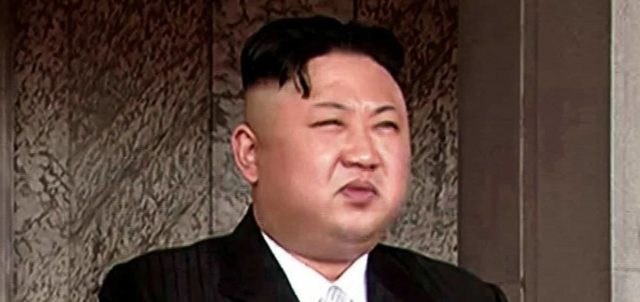
To prevent escapes, North Korea confiscates passports of officials sent abroad North Korean leader Kim Jong Un. (Yonhap News/Newscom/Zuma Press/TNS)
This article was originally published by Radio Free Asia and is reprinted with permission.
North Korea is now confiscating the passports of both managers and workers stationed abroad to prevent them from escaping, sources in China and Russia told RFA.
Pyongyang dispatches legions of workers to both Russia and China to work in factories and on construction sites to earn foreign cash for the state. The workers give the lion’s share of their salaries to their North Korean handlers, who forward it to the central government, but the remainder is still more than the workers could ever hope to earn in their home country.
It is standard procedure to confiscate the workers’ passports to make it harder for them to flee to a third country. But now even the workers’ managers have to turn their passports over to their local North Korean embassy or consulate, indicating that Pyongyang may fear that they too might try to escape.
“In February of this year, the North Korean embassy and consulates in China recovered all passports from company officials and representatives in the region,” a Chinese citizen of Korean descent told RFA’s Korean Service April 9 on condition of anonymity for security reasons.
“They retrieved the officials’ passports because during the pandemic, the companies are earning less. … It is a special measure that acknowledges the possibility that some officials may want to escape, especially as many are under heavy pressure to pay their assigned quota, despite the company’s reduced earnings,” he said.
RFA reported last month that 20 workers and their manager, who were stationed in Shanghai, went missing in mid-February. Sources in that report said the group had left their dormitory to escape to a third country, but RFA was unable to confirm that they attempted to escape.
“The presidents and trade representatives of North Korean companies do not have passports, so they cannot travel wherever they want to go,” he said. “They used to be allowed to keep their passports.
“The order to collect their passports came directly from Pyongyang. The North Korean officials are resentful that their government trusts them enough to send them overseas to work hard for the country, but does not trust that they will not run away,” he said.
In Vladivostok, the confiscation of passports means that North Koreans aren’t even allowed to take a single step outside of their workplace, a Russian citizen of Korean descent told RFA on condition of anonymity to speak freely.
“After several incidents where North Korean workers dispatched here to Russia escaped, they confiscated everyone’s passports,” he said.
“But even company officials and state security agents, who are supposed to monitor and prevent workers from escaping, have now had their passports collected. Workers who came to Russia through a one-year education or training visa, however, may have their passports in their hands for a short time while re-registering their residence every year,” the second source said.
The new regulations have changed the balance of power between the workers and their watchers.
“Russian company officials and the dispatched North Korean workers now scoff at the North Korean officials and state security agents who boldly lorded over the workers.”
Meanwhile, a local source told RFA last month that the number of North Korean workers in the three northeastern Chinese provinces is estimated to be between 80,000 and 100,000 as of January this year, with the bulk of the workers in Dandong, just across the border from North Korea’s Sinuiju. The same source estimated there were 20,000 in and around Vladivostok in Russia.




